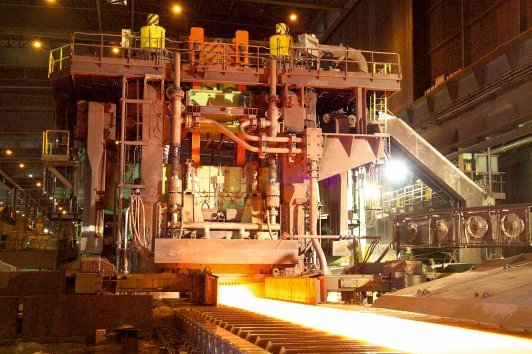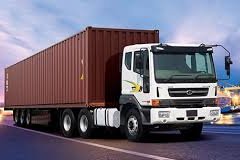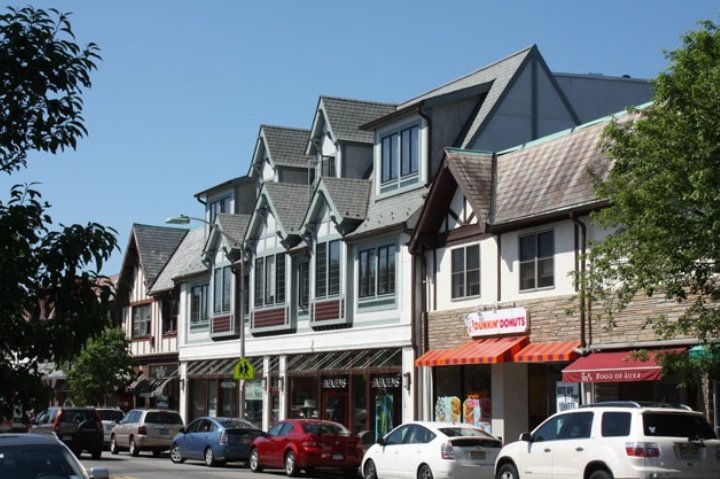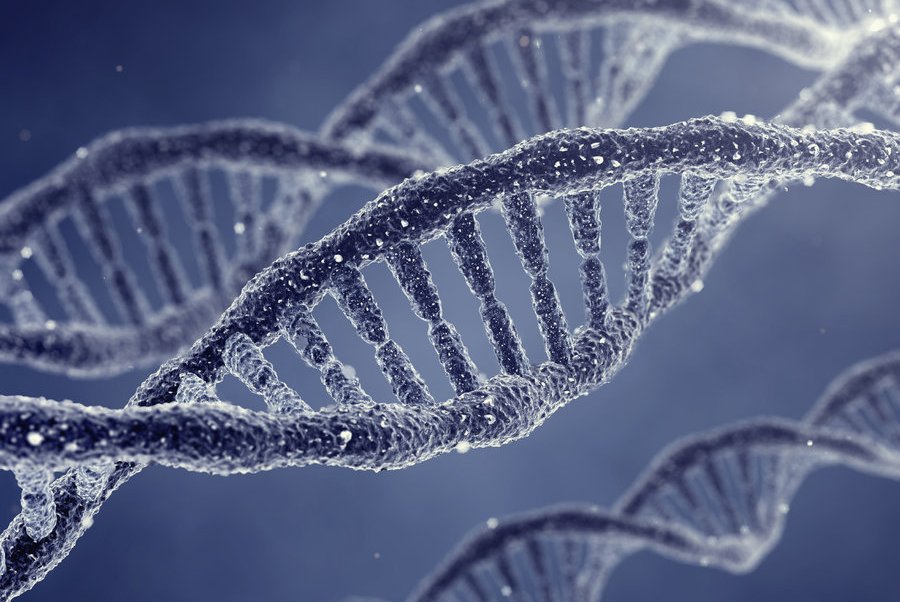|
THE MANY COMPONENTS
OF THE
SOCIO-ENVIRO-ECONOMIC SYSTEM
|
MANY TYPES OF PRODUCTS ARE IMPORTANT
|
BASIC MATERIALS

STEEL
|
FOOD PRODUCTS

FRUIT
|
TECH PRODUCTS

APPLE PHONE
|
PRODUCTS IMPACT PEOPLE, THE ECONOMY AND NATURE
NEEDED FOR A DECENT QUALITY OF LIFE
|
Food - Vegetables

|
Food - Meat

|
Housing

|
Clothes

|
Mobility

|
Recreation

|
|
More consumption correlates to a better quality of life up to a certain level. Beyond that level more consumption may well have negative consequences, as for example too much food may result in obesity and diabetes or worse.
|
|
PRODUCTS START WITH NATURE AND HAVE A LONG LIFE CYCLE
|
NATURE

|
SEA

|
STEEL

|
EATING

|
WASTE

|
RECYCLING

|
NATURE

|
ROAD

|
REFINING

|
CONSUMING

|
LANDFILL

|
RECYCLING

|
EXTRACTION

|
RAIL

|
POLLUTION

|
DRIVING

|
FLOODS

|
NO WASTE

|
|
Products enable consumption that improves quality of life.
The production of products is a critical economic activity and source of profit for companies.
Production and products are only sustainable if they do not degrade the environment. Most modern industrial process are catastrophically unsustainable.
Smarter processes are needed together with smarter products, smarter consumers and systems to enable a circular economic model.
|
|
ACTIVITIES HAVE IMPACT ON ALL CAPITALS
|
SOCIAL CAPITAL

Quality of Life
|
NATURAL CAPITAL

Essential enabler
|
ECONOMIC CAPITAL

Wealth / GDP
|
In classical economics there was the idea of 'Factors of Production' ... that is Capital, Land and Labor, where capital was money. Though not part of modern economic conversation, these ideas need to be part of modern thinking and policy formulation. Well before the industrial revolution, Adam Smith wrote not only The Wealth of Nations (full title 'An Inquiry into the Nature and Causes of the Wealth of Nations (1776) but before that a less well-known book titled 'The Theory of Moral Sentiments (1759)' both of which inform not only the thinking that is embedded in economics but is the basis for TVM.
In TVM the idea of three 'Factors of Production' is reborn as three dimensions of capital; that is a Social dimension, an Environmental dimension and an Economic dimension. For TVM progress is positive when the aggregate of these three dimensions or capitals or state is positive ... something that has been rare in recent decades. Rather, the incentives have been for economic performance to be optimised at the expense of society and the environment with the owners of the economy consolidating wealth and power with everyone else losing out.
|
|
OTHER FACTORS ARE ALSO IMPORTANT
|
PLACE

Where people live
|
PROCESS

How things are made
|
PRODUCTS

What gets made
|
|
Some people are very fortunate, and others less so. The accident of birth should not be the main determinant of success and a happy productive life. There should be opportunity for everyone.
The characteristics of the place make a big difference to quality of life. The choices people make regarding the products purchased and consumed impact the person, the economy and the environment.
|
|
AND ALSO
|
|
PRIORITIES
|
PREJUDICE
|
POLITICS
|
POLICIES
|
Not everything can be done!
Therefore choose what is most important and urgent.
Different places may have different priorities.
Different people may have different priorities!
|
Most people have preconceived ideas.
Racial prejudice is everywhere
So is religious prejudice
Be careful. Use facts.
|
Politics is important
Different viewpoints enable improvement but only when there are facts and thoughtful consideration.
|
Policies need to be practical
Perfect is rarely possible
Policy must be funded and implemented
Accountability is essential.
|
|
Some people are very fortunate, and others less so. The accident of birth should not be the main determinant of success and a happy productive life. There should be opportunity for everyone.
The characteristics of the place make a big difference to quality of life. The choices people make regarding the products purchased and consumed impact the person, the economy and the environment.
|
|
ACTIVITIES BEING CHANGED BY TECHNOLOGY
|
|
PASSENGER TRANSPORTATION
|
HORSE-POWER

|
STEAM-TRAINS

|
AUTOMOBILES

|
HI-SPEED TRAINS

|
AIR TRAVEL

|
|
Consumption is driving the modern economy. It looks like success as long as the depletion of natural resourcs and the degradation of the environment is ignored.There is strong correlation between better quality of life and more consumption in poor economies, but less so in mature rich econmies. Rich economies are increasingly associated with waste, luxury and inefficiency.
|
|
CARGO TRANSPORTATION / LOGISTICS / SUPPLY CHAIN
|
FREIGHT TRUCK

|
FREIGHT TRAIN

|
CONTAINER SHIP

|
AIR CARGO

|
PACKAGE EXPRESS

|
|
Consumption is driving the modern economy. It looks like success as long as the depletion of natural resourcs and the degradation of the environment is ignored.There is strong correlation between better quality of life and more consumption in poor economies, but less so in mature rich econmies. Rich economies are increasingly associated with waste, luxury and inefficiency.
|
|
BASIC NEEDS CONSUMPTION IS ESSENTIAL
|
FOOD

|
WATER

|
SHELTER

|
SECURITY

|
HEALTH

|
|
There has been significant progress over the past century, but too many people in the world are not able to access the basic needs.
At the same time, there are many people who choose to consume too much of the wrong things.
|
|
MORE CONSUMPTION GIVES BETTER QUALITY OF LIFE
|
CONSUMPTION

|
PROCESSES

|
MATERIALS

|
ENERGY

|
PAYROLL

|
|
Consumption is driving the modern economy. ???????????
|
|
CONSUMPTION BY ULTRA RICH HAS BAD IMPACTS
|
CONSUMPTION

|
AIR TRAVEL

|
YACHTS

|
HUGE MANSIONS

|
TAX HAVENS

|
|
Consumption is driving the modern economy. ???????????
|
|
ACTIVITIES OF BIG BUSINESS ENTITIES
|
|
ALL HAVE SUBSTANTIAL IMPACT ON SOCIETY AND THE ENVIRONMENT
|
DIGITAL TECH

Google
|
OIL & GAS

ExxonMobil
|
AERO ENGINES

Rolls Royce
|
BANKING

HSBC
|
ENGINEERING
 GE
GE
|
FOOD
 Unilever
Unilever
|
|
Most of the global economy comprises products that are produced by very big organizations that are complex with multiple factories in many different locations, and supply chains that span the globe. It is not easy to understand these companies in a way that makes it possible to hold them accountable for their behavior. Nevertheless, despite their complexity, they are able to communicate their profit performance to investors, but not their social impact nor their environmental impact, even where these are material. This has to change.
|
|
WHAT IS THE IMPACT ON SOCIETY AND THE ENVIRONMENT?
|
MINING

|
LOGISTICS

|
ENERGY

|
ELECTRICITY

|
PRODUCTION

|
OIL REFINERY

|
|
Every sector, every industry, has become very specialized and over a long period of time has been optimized for profit performance. Profit performance has been exceptional for decades, but too little attention has been paid to social and environmental issues. This must change. Process improvements are essential and must focus in improving social impact and environmental impact as well as merely being more profitable.
|
|
WHAT IS THE IMPACT ON SOCIETY AND THE ENVIRONMENT?
|
MINING

|
LOGISTICS

|
ENERGY

|
FOOD - Vegetables

|
HOUSING

|
HEALTH

|
AG-GRAIN

|
PRODUCTION

|
REFINERIES

|
FOOD - Meat

|
EDUCATION

|
HEALTH
 |
AG-LIVESTOCK

|
RAIL

|
ELECTRICITY

|
CLOTHES

|
MOBILITY

|
HEALTHCARE

|
|
Every sector, every industry, has become very specialized and over a long period of time has been optimized for profit performance. Profit performance has been exceptional for decades, but too little attention has been paid to social and environmental issues. This must change. Process improvements are essential and must focus in improving social impact and environmental impact as well as merely being more profitable.
|
|
STREAMS / STRANDS / STRINGS
|
|
WHAT ARE ALL THE IMPACTS FOR THE LIFE CYCLE OF PRODUCTS?
|
NATURE

|
EXTRACTION

|
SUPPLY CHAIN

|
PRODUCTION

|
USE

|
WASTE

|
|
Everything that is used to support a high standard of living and quality of life has a long supply chain, then production and distribution, then use, and then a post use waste chain. For metrics to be meaningful, all of these stages must be brought into account.
|
|
PEOPLE MAKE DECISIONS ABOUT THE CONSUMPTION OF PRODUCTS
|
Food - Vegetables

|
Food - Meat

|
Housing

|
Clothes

|
Mobility

|
Recreation

|
|
More consumption correlates to a better quality of life up to a certain level. Beyond that level more consumption may well have negative consequences, as for example too much food may result in obesity and diabetes or worse.
|
PRODUCTS
PRODUCTS IMPACT PEOPLE AND ORGANIZATIONS AND NATURE
|
|
PRODUCTS ARE NEEDED FOR A DECENT QUALITY OF LIFE
|
Food - Vegetables

|
Food - Meat

|
Housing

|
Clothes

|
Mobility

|
Recreation

|
|
More consumption correlates to a better quality of life up to a certain level. Beyond that level more consumption may well have negative consequences, as for example too much food may result in obesity and diabetes or worse.
|
|
PRODUCTS START WITH NATURE AND HAVE A LONG LIFE CYCLE
|
NATURE

|
SEA

|
STEEL

|
EATING

|
WASTE

|
RECYCLING

|
NATURE

|
ROAD

|
REFINING

|
CONSUMING

|
LANDFILL

|
RECYCLING

|
EXTRACTION

|
RAIL

|
POLLUTION

|
DRIVING

|
FLOODS

|
NO WASTE

|
|
Products enable consumption that improves quality of life.
The production of products is a critical economic activity and source of profit for companies.
Production and products are only sustainable if they do not degrade the environment. Most modern industrial process are catastrophically unsustainable.
Smarter processes are needed together with smarter products, smarter consumers and systems to enable a circular economic model.
|
|
BASIC NEEDS CONSUMPTION IS ESSENTIAL
|
FOOD

|
WATER

|
SHELTER

|
SECURITY

|
HEALTH

|
|
Consumption is driving the modern economy. ??????
|
|
MORE CONSUMPTION GIVES BETTER QUALITY OF LIFE
|
CONSUMPTION

|
PROCESSES

|
MATERIALS

|
ENERGY

|
PAYROLL

|
|
Consumption is driving the modern economy. ???????????
|
|
CONSUMPTION BY ULTRA RICH HAS BAD IMPACTS
|
CONSUMPTION

|
AIR TRAVEL

|
YACHTS

|
HUGE MANSIONS

|
TAX HAVENS

|
|
Consumption is driving the modern economy. It looks like success as long as the depletion of natural resourcs and the degradation of the environment is ignored.There is strong correlation between better quality of life and more consumption in poor economies, but less so in mature rich econmies. Rich economies are increasingly associated with waste, luxury and inefficiency.
|
|
WHAT ARE ALL THE IMPACTS FOR THE LIFE CYCLE OF PRODUCTS?
|
NATURE

|
EXTRACTION

|
SUPPLY CHAIN

|
PRODUCTION

|
USE

|
WASTE

|
|
Everything that is used to support a high standard of living and quality of life has a long supply chain, then production and distribution, then use, and then a post use waste chain. For metrics to be meaningful, all of these stages must be brought into account.
|
|
MANY TYPES OF PRODUCTS ARE IMPORTANT
|
BASIC MATERIALS

STEEL
|
FOOD PRODUCTS

FRUIT
|
TECH PRODUCTS

APPLE PHONE
|
|
ACTIVITIES HAVE IMPACT ON ALL CAPITALS
|
SOCIAL CAPITAL

Quality of Life
|
NATURAL CAPITAL

Essential enabler
|
ECONOMIC CAPITAL

Wealth / GDP
|
In classical economics there was the idea of 'Factors of Production' ... that is Capital, Land and Labor, where capital was money. Though not part of modern economic conversation, these ideas need to be part of modern thinking and policy formulation. Well before the industrial revolution, Adam Smith wrote not only The Wealth of Nations (full title 'An Inquiry into the Nature and Causes of the Wealth of Nations (1776) but before that a less well-known book titled 'The Theory of Moral Sentiments (1759)' both of which inform not only the thinking that is embedded in economics but is the basis for TVM.
In TVM the idea of three 'Factors of Production' is reborn as three dimensions of capital; that is a Social dimension, an Environmental dimension and an Economic dimension. For TVM progress is positive when the aggregate of these three dimensions or capitals or state is positive ... something that has been rare in recent decades. Rather, the incentives have been for economic performance to be optimised at the expense of society and the environment with the owners of the economy consolidating wealth and power with everyone else losing out.
|
|
Some people are very fortunate, and others less so. The accident of birth should not be the main determinant of success and a happy productive life. There should be opportunity for everyone.
The characteristics of the place make a big difference to quality of life. The choices people make regarding the products purchased and consumed impact the person, the economy and the environment.
|
|
AND ALSO
|
|
PRIORITIES
|
PREJUDICE
|
POLITICS
|
POLICIES
|
Not everything can be done!
Therefore choose what is most important and urgent.
Different places may have different priorities.
Different people may have different priorities!
|
Most people have preconceived ideas.
Racial prejudice is everywhere
So is religious prejudice
Be careful. Use facts.
|
Politics is important
Different viewpoints enable improvement but only when there are facts and thoughtful consideration.
|
Policies need to be practical
Perfect is rarely possible
Policy must be funded and implemented
Accountability is essential.
|
|
Some people are very fortunate, and others less so. The accident of birth should not be the main determinant of success and a happy productive life. There should be opportunity for everyone.
The characteristics of the place make a big difference to quality of life. The choices people make regarding the products purchased and consumed impact the person, the economy and the environment.
|
|
ACTIVITIES BEING CHANGED BY TECHNOLOGY
|
|
PASSENGER TRANSPORTATION
|
HORSE-POWER

|
STEAM-TRAINS

|
AUTOMOBILES

|
HI-SPEED TRAINS

|
AIR TRAVEL

|
|
CARGO TRANSPORTATION / LOGISTICS / SUPPLY CHAIN
|
FREIGHT TRUCK

|
FREIGHT TRAIN

|
CONTAINER SHIP

|
AIR CARGO

|
PACKAGE EXPRESS

|
|
Consumption is driving the modern economy. It looks like success as long as the depletion of natural resourcs and the degradation of the environment is ignored.There is strong correlation between better quality of life and more consumption in poor economies, but less so in mature rich econmies. Rich economies are increasingly associated with waste, luxury and inefficiency.
|
|
Most of the global economy comprises products that are produced by very big organizations that are complex with multiple factories in many different locations, and supply chains that span the globe. It is not easy to understand these companies in a way that makes it possible to hold them accountable for their behavior. Nevertheless, despite their complexity, they are able to communicate their profit performance to investors, but not their social impact nor their environmental impact, even where these are material. This has to change.
|
|
ACTIVITIES OF CORPORATE ORGANIZATIONS
|
|
ALL HAVE SUBSTANTIAL IMPACT ON SOCIETY AND THE ENVIRONMENT
|
DIGITAL TECH

Google
|
OIL & GAS

ExxonMobil
|
AERO ENGINES

Rolls Royce
|
BANKING

HSBC
|
ENGINEERING
 GE
GE
|
FOOD
 Unilever
Unilever
|
|
WHAT IS THE IMPACT ON SOCIETY AND THE ENVIRONMENT?
|
MINING

|
LOGISTICS

|
ENERGY

|
ELECTRICITY

|
PRODUCTION

|
OIL REFINERY

|
|
Every sector, every industry, has become very specialized and over a long period of time has been optimized for profit performance. Profit performance has been exceptional for decades, but too little attention has been paid to social and environmental issues. This must change. Process improvements are essential and must focus in improving social impact and environmental impact as well as merely being more profitable.
|
|
WHAT IS THE IMPACT ON SOCIETY AND THE ENVIRONMENT?
|
MINING

|
LOGISTICS

|
ENERGY

|
FOOD - Vegetables

|
HOUSING

|
HEALTH

|
AG-GRAIN

|
PRODUCTION

|
REFINERIES

|
FOOD - Meat

|
EDUCATION

|
HEALTH
 |
AG-LIVESTOCK

|
RAIL

|
ELECTRICITY

|
CLOTHES

|
MOBILITY

|
HEALTHCARE

|
|
Every sector, every industry, has become very specialized and over a long period of time has been optimized for profit performance. Profit performance has been exceptional for decades, but too little attention has been paid to social and environmental issues. This must change. Process improvements are essential and must focus in improving social impact and environmental impact as well as merely being more profitable.
|
|
PEOPLE ... THE ULTIMATE ACTORS
|
|
PEOPLE ARE THE CONSUMERS OF PRODUCTS
|
Food - Vegetables

|
Food - Meat

|
Housing

|
Clothes

|
Mobility

|
Recreation

|
|
More consumption correlates to a better quality of life up to a certain level. Beyond that level more consumption may well have negative consequences, as for example too much food may result in obesity and diabetes or worse.
|
|
PEOPLE ARE DECISION MAKERS
|
AS INDIVIDUALS

Live life ... work & family
|
IN ORGANIZATIONS

Do the work ... make the decisions
|
AS INVESTORS

Allocate financial resources
|
|
EMPOWER THE INDIVIDUAL AND ENABLE BASIS FOR A BETTER LIFE
|

|
Every individual is different, both in what they are capable of doing and how they want to live their lives. People should have the freedom to succeed in all sorts of good ways, and should be helped so that they never fail. People need the facts about themselves and everything around them.
|
|
ESTABLISH ACCOUNTABILITY FOR PEOPLE WITHIN ORGANIZATIONS
|

|
Companies are important drivers of the economy. Within companies it is people that make the decisions, and for many decades the dominant metric for success has been profit without taking into consideration impact on society and nature. This must change. Profit performance on its own is not enough!
|
|
MAKE DECISIONS SO INVESTMENTS BENEFIT PEOPLE
|

|
The allocation of capital shapes the future of the economy. People make the decisions about what investments should be made and have been guided mainly by the potential for growth of financial wealth without taking into consideration issues relating to society and the environment. These other issues matter.
|
MASSIVE INCREASE IN WORKER PRODUCTIVITY
BUT WORKING FOLK HAVE FLATLINED FOR DECADES
|
 Indian family
Indian family
South Asia
|
 Arab Women
Arab Women
Middle East
|
 Worker
Worker
in the USA
|
There has been progress because productivity has improved over time, but workers have flatlined in terms of wages while investors have accumulated record wealth!
|
|
ULTRA RICH PEOPLE HAVE GAMED THE SYSTEM
|

Bill Gates
Microsoft
|

Carlos Slim
Grupo Carso
|

Peter Thiel
tech entrepreneur
|
|
|
REALLY NASTY BAD ACTORS HAVE A LOT OF IMPACT
|

Idi Amin
Uganda
|

Muammar Gaddafi
Libya
|

Charles Taylor
Liberia
|
|
|
SITE COUNT

|
Copyright © 2005-2021 Peter Burgess. All rights reserved. This material may only be used for limited low profit purposes: e.g. socio-enviro-economic performance analysis, education and training.
|
|
|































































 GE
GE
 Unilever
Unilever





































































































 GE
GE
 Unilever
Unilever




































 Indian family
Indian family  Arab Women
Arab Women  Worker
Worker 




